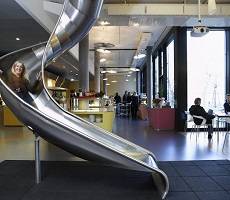September 19, 2014
Universal application of open plan has led to global privacy crisis, claims report
 A major new report from office furniture maker Steelcase claims that the universal provision of open plan offices means that organisations are facing an unprecedented privacy crisis with their employees. The claim is based on international research carried out by market researchers IPSOS and the Workspace Futures Team of Steelcase which found that a remarkable 85 percent of people are dissatisfied with their working environment and cannot concentrate. Nearly a third (31 percent) now routinely leave the office to get work done in private. The authors of the report claim that this does not mean a reversal of the decades long shift away from cellular offices but rather a move to create offices that offer a range of work settings to give people a choice of where and how to work. More than 10,000 workers across 14 countries were questioned about their office environments and working patterns.
A major new report from office furniture maker Steelcase claims that the universal provision of open plan offices means that organisations are facing an unprecedented privacy crisis with their employees. The claim is based on international research carried out by market researchers IPSOS and the Workspace Futures Team of Steelcase which found that a remarkable 85 percent of people are dissatisfied with their working environment and cannot concentrate. Nearly a third (31 percent) now routinely leave the office to get work done in private. The authors of the report claim that this does not mean a reversal of the decades long shift away from cellular offices but rather a move to create offices that offer a range of work settings to give people a choice of where and how to work. More than 10,000 workers across 14 countries were questioned about their office environments and working patterns.
























October 6, 2014
We’ve long had ‘overwhelming evidence’ for the link between office design and productivity
by Mark Eltringham • Comment, Facilities management, Workplace, Workplace design
More →